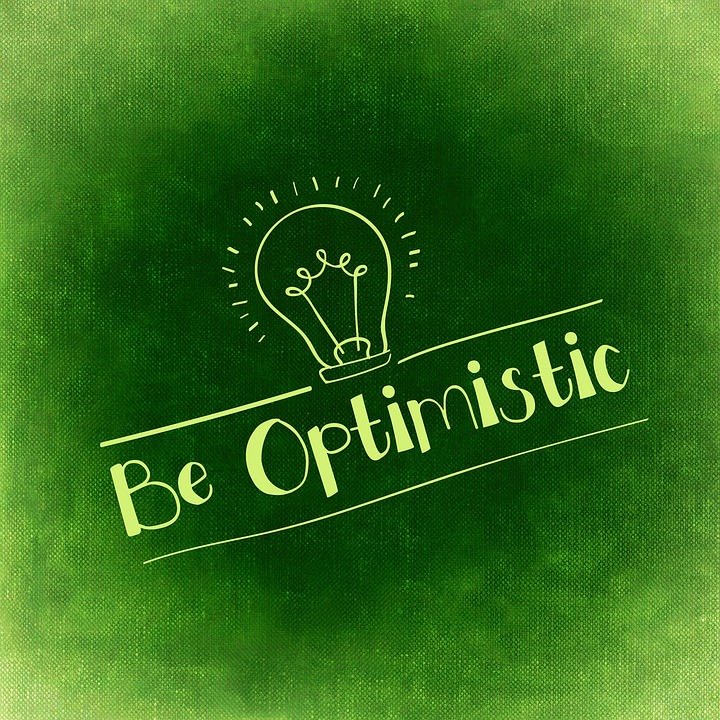Motto: "Not events influence us, but how we interpret them"
I thought in this troubled time to write a different story that goes directly to those in need, and for others who do not necessarily need this Guide, to be an example of how scientific psychology today applies to everyday life!
So, how to be happy? Happiness is a good and easy thing to do in life, through the proper interpretation of the events we live in. Let's see how we can get to experiencing / living this state as often as possible.

What is happiness?
Happiness has received different meanings throughout the evolution of humanity. Without going into detail, I only mention that in Western philosophies and cultures the following meanings emerged: (1) happiness as an expression of Homeric fortune and / or virtue in its various forms - in antiquity; (2) happiness in association with paradise - in the Middle Ages; (3) happiness through activities that make you happy - in the Modern Age. In the post-modern period, the understanding of happiness has diversified into too many approaches to discuss them here. According to Eastern philosophies and cultures, happiness can be achieved in this life, by virtue of its various forms, but it will be accomplished in the next stages of life (eg Nirvana).
In the contemporary period, especially in psychology, happiness gained a pragmatic meaning and began to be studied scientifically (through rigorous studies of experimental, clinical and positive psychology). Thus, happiness is defined as a positive emotional experience of one's own life. Obviously, when you talk about your own life, you refer to past, present and future. So to be happy, you have to be (1) satisfied with the past, (2) (as much) as joyful at present and (3) as optimistic about the future.

Why happiness is important?
From an evolutionary perspective happiness is not a goal. But it becomes a means of achieving the goal. Happiness favors those behaviors (adaptive) and mental structures (eg executive functions, thinking style) that have an evolutionary function. In addition, happiness can increase life expectancy by about 10 years (supporting physical and psychological health).
Happiness has three components:
- Happiness produced by what you do (eg, doing sports, thinking, going out with friends, etc.) - Pleasant Life
- The happiness of perform / satisfying personal desires expressing the strengths we have as individuals (eg, making a project if you are a scientist, etc.) - Good Life
- Happiness produced by perform / satisfying transpersonal desires (eg norms and values assumed by us and community) - Meaningful Life
A short guide for happiness
As I said above, happiness is a positive emotional experience for one's life: (1) you must be pleased with the past, (2) as joyful at present (as much), and (3) as optimistic about the future. Synthesizing the discussions above, let's continue to see how we can become happy, and thus live for perhaps 10 years.
How can you be happy with the past?
If your past is something you're already satisfied with, things are fine. If the past does not please you, you have to make some changes. Obviously, the past is hard to change. But there are four things you can do to get to accept and be content with it.
- Forgive those who have wronged you; if you can, tell them that. Word / key thought is: I forgive you!
- Recognize the mistakes you made; if possible, ask for forgiveness from the people you have wronged. Some may not forgive you, but you will remain confident that you have done everything that matters to you. Word / key thought is: Forgive me!
- Be grateful to those who helped you; if possible, thank them. The word / key thought is: THANK YOU!
- Love those who matter; if you can, tell them that. The word / key thought is: I LOVE YOU!
How can you be happy today?
- You have to do things that make you happy ("pleasant life"). Many people, if they are asked, are not able to immediately mention ten activities that make them happy. Some can make the list, but only after a while of thinking. Many, although they can generate the list, do not implement these activities. So, summarizing, few people are aware of the activities that make them happy (as we know how we call, how high we have, etc.) and implement them systematically in everyday life.
- You have to formulate realistic desires, corresponding strengths that you have as an individual in rational terms ( "Good Life"). In other words, a desire is formulated in "preferential terms" not in terms "absolute / rigid" ("must with necessity"). The irrational meanings are expressed by: (1) I have to ...; (2) The others must ...; (3) Life must ... Rational meanings are expressed by: (1) I prefer to ...; (2) I would prefer others to ...; (3) It would be good if life ...
- You must have a grid of explicit values that support the development of transcendental relationships (ex. God, humanity, superior beings, the universe). Many people, if they are asked, are not able to immediately mention the cardinal and central values they have in life. Some can make a list of them, but only after a while of thinking. Many, though they can generate the list of values, do not implement these values in their daily lives. So few people have and / or are aware of values that mark their life (as we know how they call us, how high we have, etc.) and implement them systematically in the daily.
How can you be optimistic about the future?
What is optimism? Optimism derives from the Latin "optimum" that means "the best". So, optimism is a cognitive style that causes you to see and / or to expect / predict the best result in any situation. In contrast, pessimism derives from the Latin "pesimus" which means "the worst". So pessimism is a cognitive style that causes you to see and / or to expect / predict the worst result in any situation. Despite etymological meanings, specialist studies show that optimism and pessimism are not bipolar concepts: increased optimism does not mean low pessimism or inverse. Not every form of optimism is good. We must have a "realistic optimism". Pessimism supports negative emotional states (eg sadness), making us lose opportunities. Optimism supports positive emotional states, but can reduce our ability to identify dangers and vulnerabilities. Realism, in its deep sense, is difficult to achieve given the complexity of the world we live in, relative to the limits of the human mind. But we can bet on a "realistic optimism," ie a doubled and controlled optimism of rational thinking (which has logical, empirical and / or pragmatic support). So how can you be optimistic? (1) Set your pro-social goals that correspond to a cultural ideal in your environment and then (2) develop plans to achieve them, and (3) try to implement them, following these plans and waiting for you you get the desired results.

The scientific recipe of happiness
- Make frequent, pleasant life behaviors that do not have major medium and long-term costs (their list varies from person to person).
Here are some examples (but each person must set their own list):
Do sports, drink moderately, go out with friends, etc. (Adaptive)
To consume drugs, to have unprotected sex, etc. (non-adaptive-avoidable)
- Have personal and transpersonal wishes.
Correctly oriented:
Personal desires oriented ( "Good Life"):
Health and a healthy lifestyle,
Developing satisfactory interpersonal relationships,
Active involvement in various professional and / or life projects that express the strengths you have as a person.
Transpersonal oriented desires ( "meaningful life"):
Development of transcendental relationships (ex. God, superior beings, humanity, universe),
Taking a grid of values explicit and prioritized assets. Their list varies from person to person. Here are some examples:
1-2 cardinals (eg excellence, knowledge)
2-4 central (eg altruism, honor, fairness, intelligence)
4-6 main (eg tradition, respect for value, family, humor, fun)
6 secondary (eg environmental protection, etc.)
Correctly formulated
Preferentially, rationally accepting that it may not always be met.

Psychological happiness pill
- Do what you like but do not hurt you!
- Be involved in personal projects!
- Build a minimal social network!
- Build your sense and significance by assuming values and transpersonal relationships!
- Change what you do not like!
- Accept what you can not change!
- Make the difference between 5 and 6!
Exercises for happiness
- Develop a list of 10 behaviors that cause you pleasure and you will make in the next month
- Set yourself up for personal goals:
Improving health - what will you do?
Strengthening / developing social networks (including more frequent family interactions) - what do you do?
Implement realistic projects (which can also bring revenue) - what will you do?
- Set up your transpersonal goals and a grid of values:
Develop meaning and meaning through religion and / or culture - what will you do?
Specify your value grid and know it as your own name
This post has been selected by Altruistic as a post of the day has been given an upvote.
You can join us on her discord server: https://discord.gg/KHB9eJk to know more about what we do and how we can be of help
Please kindly upvote this comment in order to keep us helping plankton and minnows that their quality posts are undervalued.